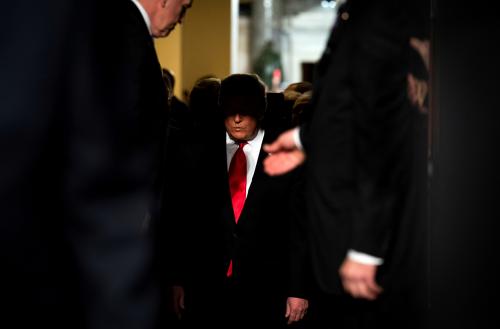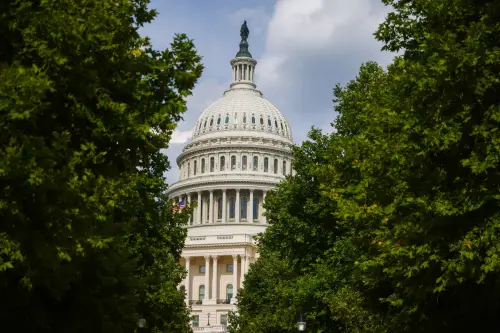

10:00 am EST - 11:30 am EST
Past Event
10:00 am - 11:30 am EST
1775 Massachusetts Avenue N.W.
Washington, DC
20036
President-elect Donald Trump recently told the New York Times, “I would love to be able to be the one that made peace with Israel and the Palestinians,” and suggested he might appoint his son-in-law, Jared Kushner, as a special envoy for the region. He and his advisors have expressed divergent views on the conflict at different times, however, leaving his ultimate approach murky. Meanwhile, President Obama is considering what legacy to leave for President-elect Trump towards a key U.S. ally, including whether to take any action on the Israeli-Palestinian conflict during his remaining weeks in office.
On December 2, the Center for Middle East Policy at Brookings released the results of new public opinion polls by Nonresident Senior Fellow Shibley Telhami focusing on American attitudes toward Israel and the Israeli-Palestinian conflict. Findings from two polls—one taken just before the election, and one just after—set the stage for both Obama and Trump in weighing their approach to the conflict.
Telhami revealed the poll results and discussed their implications with Martin Indyk, executive vice president of Brookings, and Sarah Yerkes, a visiting fellow in the Center for Middle East Policy. Tamara Cofman Wittes, senior fellow and director of the Center for Middle East Policy at Brookings, moderated the panel. Following the discussion, the panelists took audience questions. This event launches the Center for Middle East Policy’s 13th annual Saban Forum, a U.S.-Israeli strategic dialogue, which runs from Friday, December 2 through Sunday December 4.
Panelist




George Ingram, Anthony F. Pipa
July 10, 2025

Robert Kagan
June 21, 2025

Sarah A. Binder
June 5, 2025